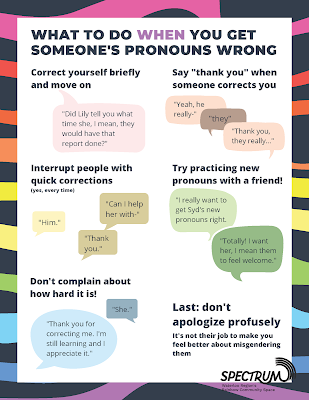Walking the Fence
I’m also a United Methodist pastor. And for anyone who follows along with
denominational things, this is a tough week.
We have a lot of “tough weeks” as a denomination because we are anything
but united. This particular week
is tough because a significant part of the denomination is leaving to form a
new denomination. Why? Because they
believe a big portion of the United Methodist Church is no longer faithful to
God’s word. It’s complicated, but the
issue that floats to the surface is that some churches support LGBTQIA rights
and others do not. Supporters and
opposers of rainbow rights all believe they are being faithful to God’s call.
It's no secret or surprise where I stand. I get frustrated with churches and pastors who
are leaving. I read the statement of a
colleague whose church voted to disaffiliate last week, and I get stirred up
seeing what I believe to be discriminatory practices play out in real life in
the name of Jesus. But if I’m really
honest with myself, I have to admit that I understand this colleague and others
like him. If I had his theology,
I would have written a similar statement.
I understand his conviction, because I have it too. I happen to have different theology and a
different Biblical hermeneutic, and on rainbow rights, those differences put us
in direct opposition, believing there is barely any middle ground. So I kind of get him and his conviction.
I have a harder time understanding colleagues who walk the
fence when it comes to rainbow rights. I
know living in the middle can be a virtue, I know understanding multiple
perspectives is important, and I know we need people who toot the horn of
unity. Over the years, I have seen this
fence-walking mostly in congregational development circles (i.e., leaders/consultants/pastors
who primarily focus on healthy church growth).
I hang in a lot of these circles because this is my passion, and
occasionally I get asked to coach or consult others in this work.
When I first started hanging with folks with this similar
passion, I’d hear people say, “We don’t worry about your theology. We care about outreach and growth.” In other words, they could overlook quite a
few things because we all were working towards a common goal of leading people
to Jesus. I bought that for a long time,
and I still do to some extent. I can
disagree with folks on many things—and I still work with them.
But on other things I can’t compromise. LGBTQIA rights is one area in which I have
decided that I won’t compromise. We all
draw our line some place for some reason.
My reasons happen to be between the ages of 16-21.
If a church is growing and flourishing, but it won’t accept
my kids, then it has the potential to hurt my kids. I can’t possibly support their growth and
vision. It’s like racism to me. I actually don’t want a church with overt
racist ideals to succeed. If one
believes it is wrong to discriminate against LGBTQIA folks, how can one hold
that belief and support the vision and growth of organizations that do
that?
I don’t have ill feelings towards colleagues who walk the fence. I actually admire them right now. It’s not an easy place to be, balancing up
there with voices trying to pull you down to one side or the other! While I draw my line in one place, they draw
their line in a different place on this one.
I do wonder: If the thing holding
their balance on the fence is a concern for growth/outreach/evangelism or even
unity, at what point does someone get knocked squarely to one side or the
other? At what point does one admit they
don’t want a certain kind of church to grow?
Is it theology that sends us there?
Biblical hermeneutics? Or experience with our beloved children?




Comments
Post a Comment